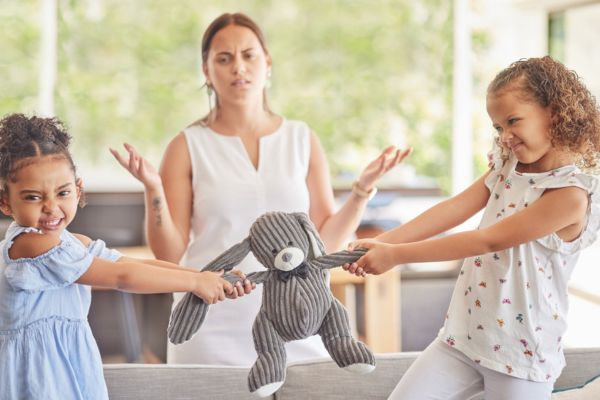
Intellectually, we know kids aren’t perfect. However, emotionally we often have unrealistic expectations around their behavior. We expect things we wouldn’t expect of ourselves or other adults. Here are three behavior areas we often struggle with.
1. Play Nicely with Others
We want kids to share, speak kindly, include others, and display all kinds of other behaviors when they’re playing with friends. All of those things are great goals and we should help kids learn the tools needed to accomplish them. We also have to realize that sometimes, like us, kids are feeling mad, sad, tired, stressed, overwhelmed, or some other emotion that keeps them from being a great friend. Instead of reminding them of what they should be like, just be with them as they are. Give them a hug, ask them if they want to talk about things, remind them everyone has a tough time now and again.
2. Communicate Respectfully
Communication is hard. There are a lot of adults who struggle with respectfully sharing their feelings, asking for what they want, saying no, or debating a point. Imagine how hard it is for kids who are at the beginning of the learning curve. When kids are struggling with communicating respectfully, don’t ignore them, tell them what to say and how to say it, or shut them down. Kids too easily lose their voice when adults send the message that their voice isn’t “right.” Instead, share what you need, model what respectful communication sounds like to you, and support them in their learning.
3. Make Good Choices
So many things have to align for a good choice to be made. Children have to effectively manage their emotions, seize on the space between stimulus and action, think through the choices they have, and decide which one serves their interests while staying within the rules. It’s a lot and it’s no wonder they, like us, often don’t hit the mark. When that happens, appreciate the effort, find what’s right in whatever is wrong, and let them know that while good choices are the goal, that doesn’t happen all the time and that’s okay. We just keep trying.
It’s hard to manage our expectations around kids. Sometimes we see their behavior as a reflection of us as caregivers so our expectations are exceptionally high. Sometimes it’s all we can do to manage ourselves and we don’t have the mental or emotional bandwidth for their learning curve. Whatever the reason, having realistic expectations of the kids we care for will help them thrive in the face of human imperfection.